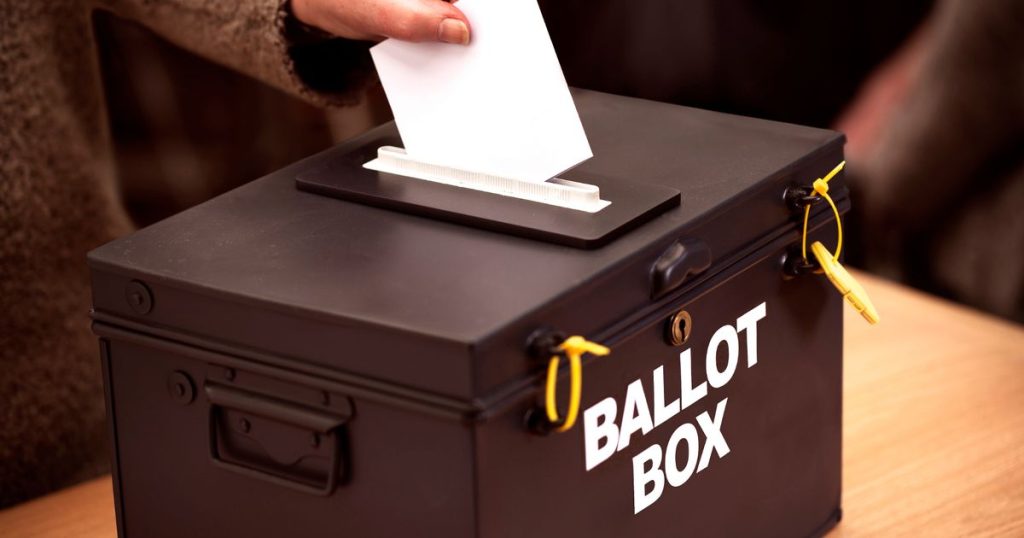The last local polls before the next general election will take place on Thursday, May 2. The elections will involve choosing mayors, police and crime commissioners, and thousands of councillors in parts of England and Wales. There are new voting rules in place, with elections happening in 107 local authorities across England, as well as the selection of the Mayor of London, London Assembly members, and 10 mayors outside the capital. Additionally, 37 police and crime commissioners will be elected across England and Wales, with a by-election to select a new MP for Blackpool South.
To vote in the elections, voters must be over 18 and registered at an address in the area they want to vote in. British citizens, Irish and EU citizens, and eligible Commonwealth citizens can all participate in local elections. There are three ways to vote – in person at a polling station, by postal vote, or by nominating a proxy to vote on behalf. The deadline to register to vote has passed, but an emergency proxy vote can be requested up until 5pm on polling day. Voters can find their local polling station using the postcode finder from the Electoral Commission and must bring a valid form of ID.
Local councils are responsible for overseeing services such as bin collections, parks, local planning, schools, and road maintenance. More than half of the local elections are in district councils, with the rest being in county councils and unitary authorities. Mayors in England represent 44% of the population and have a budget of £25 billion, with responsibilities in areas such as skills, transport, and housing. The election will see mayors chosen in areas like the East Midlands, North East, and York and North Yorkshire for the first time.
The police and crime commissioners (PCCs) were introduced in 2012 to hold police forces accountable to local communities, replacing police authorities. PCCs can appoint and dismiss chief constables and oversee local fire services in some areas. A total of 37 PCCs will be elected this time around, with some areas, like London and Greater Manchester, having the role performed by the mayor. In the previous elections, there were 248 Conservative gains, 264 losses for Labour, and additional councillors added by the Greens, with a by-election win for the Conservatives in Hartlepool.
Results for the local elections are expected to emerge overnight into Friday, May 3, with more results following throughout the day and a few announced over the weekend. Mayoral election results will be announced on Friday and Saturday, along with the London Assembly election results. The elections will impact local communities and governance, with significant roles like mayors, PCCs, and councillors being chosen across England and Wales, reflecting the democratic process and the diversity of local representation. Voters are encouraged to participate and make their voices heard in these important elections.


